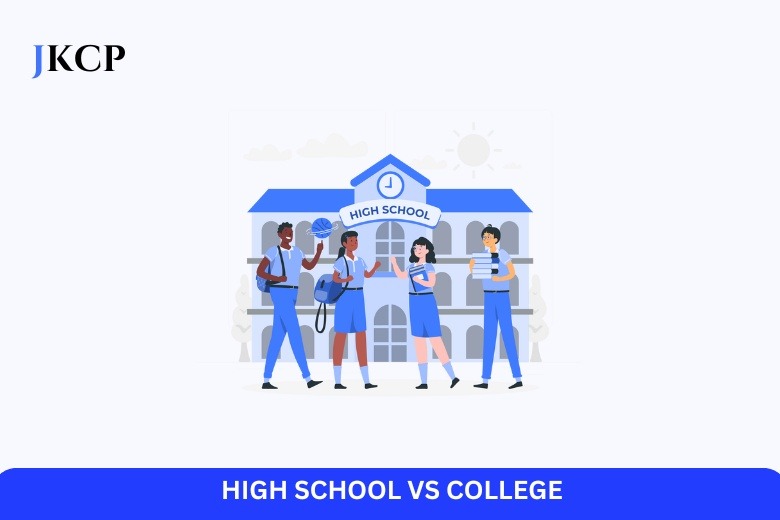How to Find a Great High School Internship and Get Real Job Experience
Let’s say that you are a high school student with a passion; something you love so much you think you might want to pursue it as a career. But, you want to find out if the reality matches up with the dream. Finding an internship in this field is a fantastic way to see if you want to gain knowledge and experience; doing it as high school student can also help you make a more informed decision about what college to attend or even what college major you may complete in the future. Even if you have no idea what you want to do, a high school internship can be a great way to start exploring career options.
During this exciting phase, one thing that tends to get overlooked is how to find an internship that will offer you very good, relevant experience. There are many tools and opportunities for high schoolers to find internships; usually, the difficulty is discerning which internships will offer real job experience in that field. At a good internship, you will be typically carrying out some of the duties of an entry-level employee at the company. At a great internship, you will have more exposure than an entry level position and have the chance to gain more experience.
Here are a few steps to ensure that the internship you have your eye on is going to be one where you will be able to learn, gain experience, and make a positive impact on the company as well.
1. Read Reviews Online and Do Research
It never hurts to do some internet research – a lot of it. These days, it seems obvious that the first place to start finding an internship is online. When you search, it may seem like there are a lot of opportunities. However, when you dig a little deeper, not all internships are created equal!
Sites such as Glassdoor will allow you to see feedback from employees and interns. Be sure to think critically about these type of self-review sites – look for signs of malevolence from disgruntled former employees or red flags in negative reviews. Ensure that you are looking at the reviews in totality; even the best companies to work for in the world might have some detractors and negative reviews; take them seriously, but don’t get hung up on a couple of bad reviews. Companies that take the time to post a meaningful response on these sites also gain bonus points.
Your goal is to leverage this crowd-sourced information to see if there is any insight to show how meaningful their internships have been for previous interns. You may find a previous intern in a similar role that explains whether or not the company met the expectations laid out in the internship description, for example.
TOP TIP: If you can’t find reviews and don’t have any contacts at a company, you can use LinkedIn to try to learn more about the company, see who works there, and try to connect with someone at the company even if you don’t already know an employee.
2. Keep an Eye Out for the Culture of the Company
Different types of company culture may not necessarily be good or bad, but more about personal preference. If you don’t think that you would want to intern at a company with a completely open floor plan, you might want to take that into consideration, for example. Make sure you are also aware of the company’s reputation in the industry. Not only will better companies to work for often carry more merit on a resume, but a winning culture usually means they value people – this is a good sign that they will value your time as an intern and make sure the opportunity is fruitful for both you and them. This information will also be helpful during the interview process when they ask why you want to intern with them. Some questions that you can ask in an interview to help you learn more about the company culture:
- Will I work independently or on a team?
- How would you describe the work environment?
- What is the dress code like?
- What do employees do for lunch everyday?
These questions can vary depending on the industry or business you are interested in and there isn’t necessarily a wrong answer to any of them. It’s just good to know ahead of time if everyone works through their lunch break or that you might be expected to work very independently. The key is to make sure it’s a good fit so you can be comfortable while on the job!
TOP TIP: During the interview, ask questions about what tasks or projects previous interns have done.
3. Talk to Previous or Current Employees or Interns
The best way to learn more about a company is to speak with a current or previous employee or intern. If you can, leverage your network to see if you have any contacts. Utilize LinkedIn to connect if needed. For most internships, there will be an application and interview process. Remember that the interview is a two-way street; this is a great forum to ask questions and ensure that the internship is a great fit for BOTH parties involved. If you interview with a company and feel as though it will not be a good fit, that is okay – just because you interview doesn’t mean you have to accept the internship. However, you do want to ensure you are clear and up-front with a company – don’t ghost them after an interview – send a letter thanking them and letting them know you are pursuing another opportunity.
High school is great time to be doing an internships because you are getting a great head start; you may even be able to spend you summer trying out several internships if they are each just a few weeks. If an interview just doesn’t feel like a great fit for you, you can try out a completely different company or industry. For instance, if you thought you were interested in a TV or Video Production internship, maybe a Marketing internship could be a good fit! The point is, high school is a great time to experiment so don’t put too much pressure on yourself to find something in a specific industry.
TOP TIP: If a company doesn’t ask questions about you in your interview, this can be a red flag! You want to find an internship where your supervisors care about what you get out of your time at the company, not just what they can get from you!
4. Don’t Target an Easy Internship
Find one that challenges you – you want to find an internship where they expect you to bring something to the table. Sure, there might be a little more pressure – but that is how you learn and grow. An easy internship might pad your resume, but it likely will not help you decide how much you enjoy a certain industry or career path.
You might not even realize this, but some internships can be a waste of your time. If you are going to spend 8 or 9 hours a day at a company, you want to make sure you actually have enough work to do. You don’t want to spend your day scrolling on the internet and getting coffee every once in a while.
TOP TIP: An internship might involve entry level work like filing or other simple administrative tasks for part of the time. Don’t rule this out as bad experience. Being in the office and seeing what the day is like for the employees can also be very valuable. Even taking notes in a meeting can be great experience!
5. Look for specific responsibilities and skills you’ll be expected to fulfill
If you find an internship that seems vague, be sure to inquire with the company exactly what you will be asked to do and how you will be helping the company. The best way to gain real-life job experience is to be placed into a position where you are expected to provide something and help the company out – this is where you will gain the most experience.
It is imperative that you know exactly what is required and expected. Not surprisingly, some companies view high school interns as ‘free’ or ‘cheap’ source of labor to complete repetitive and unskilled tasks. While you may still gain some benefit from these types of arrangements, they tend to help more on paper, as resume builders, than actually helping you gain job experience.
TOP TIP: Ask how long the internship lasts. Often times high school internships are only a few weeks. If it’s not a perfect fit, you can probably find another internship after it’s done.



